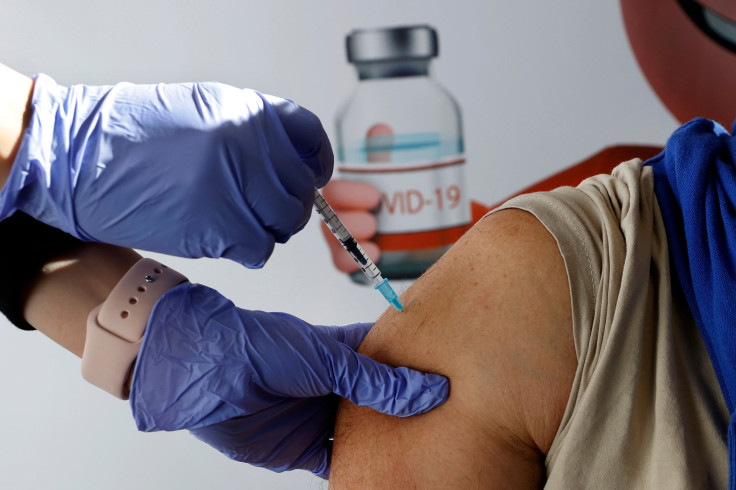You Got The COVID Vaccine, But Here’s How You Could Still Be Contagious
As the COVID vaccine rolls out to a portion of the population, it doesn’t necessarily mean that those that have received the shots are no longer able to spread the virus, according to a report published in the “Journal of Thoracic Oncology.”
One of the authors, Dr. Michele Carbone of the University of Hawaii Cancer Center and Department of Pathology, along with a team of international colleagues, explained how the COVID-19 vaccination works and why getting it may not prevent someone from spreading the virus.
In the report discovered by The Hill, Carbone talks about the COVID vaccines currently in use in the U.S. - the Pfizer-BioNTech and Moderna. He explained that these RNA vaccines use antibodies or proteins produced by the immune system to protect against the virus.
The vaccines have an up to 95% efficacy rate in the individuals that are inoculated with the drug, which allows them to develop IgG antibodies. But because these vaccines were primarily tested on people that were healthy and younger than 60, those that are currently receiving inoculations are producing reduced IgG antibodies, Carbone said.
These antibodies move through the bloodstream and protect from systemic infections such as viruses that can spread in the body and cause illnesses. But another kind of antibody exists.
The IgA antibody protects the body’s mucosal areas – nose, pharynx, and intestine – but no clinical trials have been performed on vaccines that produce these types of antibodies, meaning that COVID-19 can still infect these areas of vaccinated individuals, the report warns.
While this may not be an issue for people that are vaccinated as the IgG antibodies will stop them from spreading the virus within their own body, they can, however, still grow the virus on their mucosal surfaces and spread it to other people, Carbone said.
But the report maintains that those people that produce both IgA and IgG from being infected with the virus are “safe” as reinfection is uncommon.
Dr. Max Gomez from WLNY, a CBS affiliate out of New York, seems to agree with Carbone to some degree as he said, “It is theoretically possible that a vaccinated person could still harbor the coronavirus, not get sick from it because of the vaccine, but still be able to spread it.”
However, Gomez said that because clinical trials didn’t test if vaccinated people could spread the virus, it is still an unknown.
Despite the current COVID vaccines’ inability to produce the IgA antibodies, Carbone doesn’t see this as a major concern if everyone gets vaccinated. But that is a situation he realizes will most likely not occur, so the COVID vaccine itself will not eliminate the virus in the near-term.
Carbone added that through vaccinations and infections, herd immunity could be achieved soon.

© Copyright IBTimes 2024. All rights reserved.





















